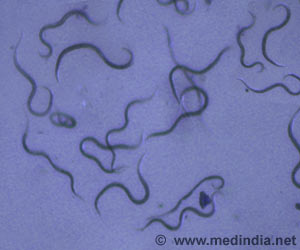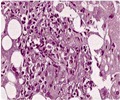Adults may not be the only ones at risk of snail fever, children may get affected early say within the first year of life, and it may take three months for symptoms to develop in them, finds a new study.

‘Children could contract an infection within their first year of life, and develop symptoms within three months. Until now, pre-school children have not been routinely tested for or treated for this condition. The study also highlighted for the first time that infected children are at risk of malnutrition and stunted growth.’





The parasite, which is carried by freshwater snails, mainly infects people in sub-Saharan Africa. Once diagnosed, treatment with a cheap, readily available drug is usually effective.Common symptoms include abdominal pain or blood in the urine. In children, it can cause stunted growth and learning difficulties. Infection acquired in childhood can cause bladder cancer and liver damage, or impact on reproductive health, in adults.
Until now, pre-school children have not been routinely tested for nor treated for the condition, as the health impact of childhood infection has not been well understood.
In the first long-term study of the disease in this age group, researchers at the University of Edinburgh and collaborators in Zimbabwe monitored 1500 children aged from six months to five years old over the course of a year.
Their research showed that children could contract an infection within their first year of life, and develop symptoms within three months. The study also highlighted for the first time that infected children are at risk of malnutrition and stunted growth. Treatment of the infection with the drug Praziquantel was shown to reverse symptoms.
Advertisement
Professor Francisca Mutapi of the University of Edinburgh's School of Biological Sciences, who led the study, said: "We now know there is no such thing as snail fever without symptoms, and young children can get infected by snail fever very early in their lives."
Advertisement
Source-Eurekalert















